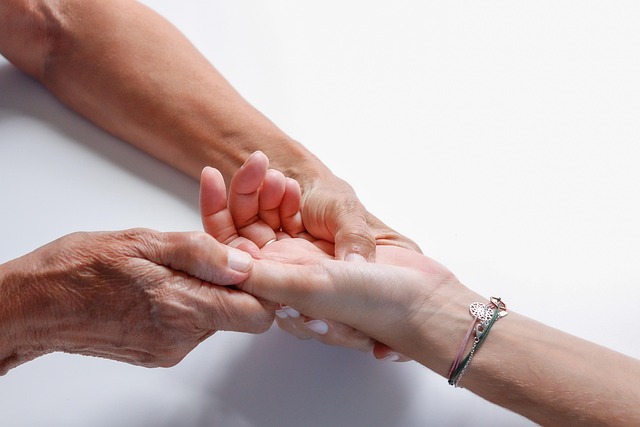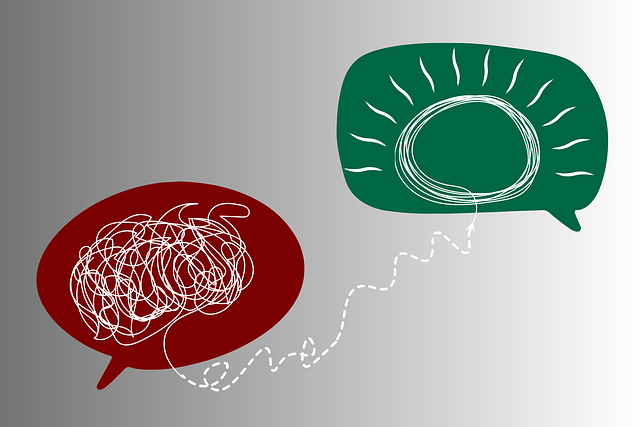Cultivating resilience through dedicated practice and specific training is essential for navigating life's challenges and maintaining mental health in today's high-stress world. Resilience programs integrate techniques from stress relief therapy, such as mindfulness meditation, cognitive behavioral therapy (CBT), deep breathing exercises, and physical activities, to help individuals manage stress, develop coping mechanisms, and foster a positive mindset. These sessions emphasize self-reflection, learning effective coping strategies for daily routines, and building mental fortitude through practices like mindfulness and meditation. Physical activity also serves as stress relief therapy, releasing endorphins to enhance emotional stability. Creating supportive communities within the training environment encourages peer support and fosters collective resilience. Regular assessments and celebrating small wins maintain momentum and ensure continuous growth in stress relief therapy techniques.
Resilience training sessions are becoming increasingly vital in today’s fast-paced world, equipping individuals with the inner strength to navigate life’s challenges. This comprehensive guide delves into various aspects of building resilience, focusing on effective coping strategies and stress relief techniques. From understanding the concept of resilience to incorporating mindfulness and physical activity, each section explores powerful tools to enhance mental fortitude. Discover how stress relief therapy plays a pivotal role, guiding you through personal trigger identification and fostering a supportive community for continuous growth and well-being.
Understanding Resilience: Building Inner Strength

Resilience, at its core, is the inner strength that allows individuals to bounce back from adversity, navigate life’s challenges, and emerge stronger. It’s a skill, much like learning to play an instrument or mastering a sport, that can be cultivated through dedicated practice and specific training sessions. In today’s fast-paced world, where stress and pressure are omnipresent, resilience becomes not just a desirable trait but a necessity for maintaining mental health and overall well-being.
Resilience training sessions focus on providing individuals with the tools to manage stress, develop coping mechanisms, and foster a positive mindset. These sessions often incorporate various techniques from stress relief therapy, such as mindfulness meditation, cognitive behavioral therapy (CBT), and physical exercises designed to enhance mental fortitude. By understanding and building resilience, folks can better navigate life’s ups and downs, ensuring they remain balanced and equipped to handle whatever comes their way.
The Role of Stress Relief Therapy in Training Sessions

Resilience training sessions often incorporate stress relief therapy as a crucial component, recognizing that managing stress is an integral part of building mental fortitude. In today’s fast-paced world, where folks are navigating a hustle and bustle of responsibilities, stress relief therapy provides a sanctuary for participants to unwind and reset. Techniques such as mindfulness meditation, deep breathing exercises, and progressive muscle relaxation empower individuals to confront stressors with calmness and clarity.
These practices don’t just offer immediate relief; they cultivate a mindset that embraces challenges as opportunities for growth. By integrating stress relief therapy into training sessions, participants learn to recognize their emotional responses and develop healthier coping mechanisms. This, in turn, enhances their ability to bounce back from setbacks, making them more resilient in both personal and professional spheres.
Identifying Personal Triggers and Coping Mechanisms

Resilience training sessions often begin with a deep dive into personal triggers and coping mechanisms. Understanding what sets off our stress response is crucial for effective stress relief therapy. By identifying specific situations, thoughts, or emotions that trigger feelings of overwhelm, individuals can start to develop healthier coping strategies.
This process involves self-reflection and awareness. It encourages folks to recognize their unique reaction patterns and explore alternative ways to manage stress. Once triggers are identified, participants can learn techniques such as mindfulness, deep breathing exercises, or cognitive reframing to counteract these triggers, fostering a more resilient mindset.
Developing Effective Coping Strategies for Daily Life

Resilience training sessions equip individuals with powerful tools for navigating life’s challenges, fostering mental fortitude, and enhancing overall well-being. One of the key aspects of this process is learning effective coping strategies that can be seamlessly integrated into daily routines. These strategies serve as a form of stress relief therapy, empowering people to manage their responses to stressful situations more adaptively.
By participating in resilience training, individuals discover healthy outlets for processing emotions, such as mindfulness exercises or creative expression. Such practices not only help in the moment but also build long-term coping mechanisms that can be relied upon during trying times. Ultimately, developing these skills enables folks to bounce back from setbacks with greater ease, promoting a more resilient and fulfilling life.
Incorporating Mindfulness and Meditation Techniques

Incorporating mindfulness and meditation techniques into resilience training sessions is a powerful strategy for managing stress and cultivating emotional balance. These practices allow individuals to develop a greater sense of awareness, enabling them to respond rather than react to challenging situations. By focusing on the present moment, mindfulness helps participants observe their thoughts and emotions without judgment, fostering a deeper understanding of their triggers and coping mechanisms.
Meditation further enhances resilience by promoting relaxation and reducing anxiety. Regular practice can lead to significant improvements in stress relief therapy, allowing individuals to navigate turbulent times with increased clarity and composure. Incorporating these techniques into training sessions empowers participants to build mental fortitude, making them better equipped to handle life’s challenges and cultivate a more resilient mindset.
Physical Activity and its Impact on Mental Resilience

Physical activity serves as a powerful tool for cultivating mental resilience, offering a multifaceted approach to managing and reducing stress. Beyond its well-documented physical health benefits, regular exercise plays a pivotal role in enhancing an individual’s ability to cope with challenging situations. When incorporated into resilience training sessions, physical activity acts as a form of stress relief therapy, promoting mental fortitude and emotional stability.
Engaging in various forms of exercise triggers the release of endorphins, often referred to as “feel-good” hormones, which can significantly lower stress levels and improve overall mood. This physiological response not only provides an immediate sense of well-being but also contributes to building mental resilience over time. By repeatedly exposing oneself to physically demanding activities, individuals learn to persevere through discomfort, fostering a mindset that translates into greater resilience when faced with life’s challenges and stressors.
Creating a Supportive Community for Continuous Growth

In resilience training sessions, fostering a supportive community is key for continuous growth and development. A nurturing environment encourages participants to open up, share experiences, and learn from one another. This sense of belonging helps mitigate feelings of isolation often associated with stress relief therapy, promoting a collective focus on well-being. By creating safe spaces where individuals feel validated and understood, the sessions enhance the overall effectiveness of the training, fostering resilience not just as an individual but as a community.
Additionally, this supportive network serves as a powerful tool for peer support, providing a system of check and balance outside the formal training setting. Members can lean on one another during challenging times, drawing strength from shared experiences and strategies learned during the sessions. This interdependence fosters a culture of resilience, where continuous growth is not just an individual pursuit but a collective goal.
Measuring Progress and Celebrating Small Wins

Measuring progress and celebrating small wins are integral parts of resilience training sessions, serving as powerful motivators for individuals seeking to enhance their coping mechanisms. By incorporating regular assessments, participants can track their development in managing stress relief therapy effectively. This could involve pre- and post-program evaluations, where individuals gauge their emotional well-being, stress levels, and overall resilience before and after the training. Such metrics provide tangible evidence of progress, enabling participants to recognize their achievements and adapt their strategies accordingly.
Moreover, acknowledging small victories along the journey fosters a sense of accomplishment and encourages persistence. Celebrating these wins—be it mastering a new coping skill, successfully navigating a challenging situation, or adopting a healthier mindset—reinforces positive behaviors and reinforces the benefits of resilience training. This approach ensures that individuals remain engaged, inspired, and committed to their personal growth in stress relief therapy.
